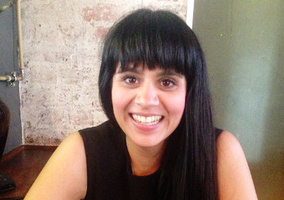Unicef UK is aiming to fundraise £650m over the next four years, a deputy director from the charity said.
Mohini Raichura-Brown, the deputy executive director of partnerships and philanthropy at Unicef UK, was speaking in an exclusive interview for Fundraising Magazine.
Whilst acknowledging this is a “very ambitious” goal, Raichura-Brown said she believes just over half of the proposed growth is to come from the high-value market.
Raichura-Brown’s remit covers the high-value, which encompasses corporates, foundations, engagement with high-net-worth individuals and special events like the charity’s annual televised fundraising event Soccer Aid.
This fundraising target is not about “resetting rigid targets”, Raichura-Brown said, but sketching out a “longer-term sustainability plan for the organisation and looking at the different things that will be enablers of that.”
Fundraising accounts for 94% of Unicef’s income
Fundraising streams made up £133.81m (94%) of the international development charity’s income for the financial year ending December 2021.
Around £70m of this fundraising income came from high-value donations, says Raichura-Brown.
She said: “As an organisation, we are looking to invest further in high-value income as a growth area; not to say that mass fundraising isn’t growing, but I think proportionately we are seeing that high-value can grow at scale. So, we’ve got a lot of ambition and investment in that area.”
‘Growth does not come from simply working harder’
Achieving this fundraising target will come about from collaboration and innovation, Raichura-Brown said, as opposed from simply working harder.
“Growth is not going to come by simply working harder. I can’t ask my teams to do any more than they do already. So it is about looking at new ways of working, looking at new internal processes and product development.
“Looking at new types of events and new products within the high-value offering. Strong stewardship and relationship management is really important because some of this is about deepening the engagement we have with our current partners and supporters, and seeing what else they are interested in.”
Despite this, Raichura-Brown acknowledged that charities in general are operating in an “exceptionally difficult” fundraising landscape.
Many are beginning to look at growing their high-value income because of this, she said.
Read the full interview in the latest edition of Fundraising Magazine.
Related articles












